How your menstrual cycle impacts sleep — plus 3 ways to beat period insomnia
Expert shares how each stage of the menstrual cycle changes how we sleep
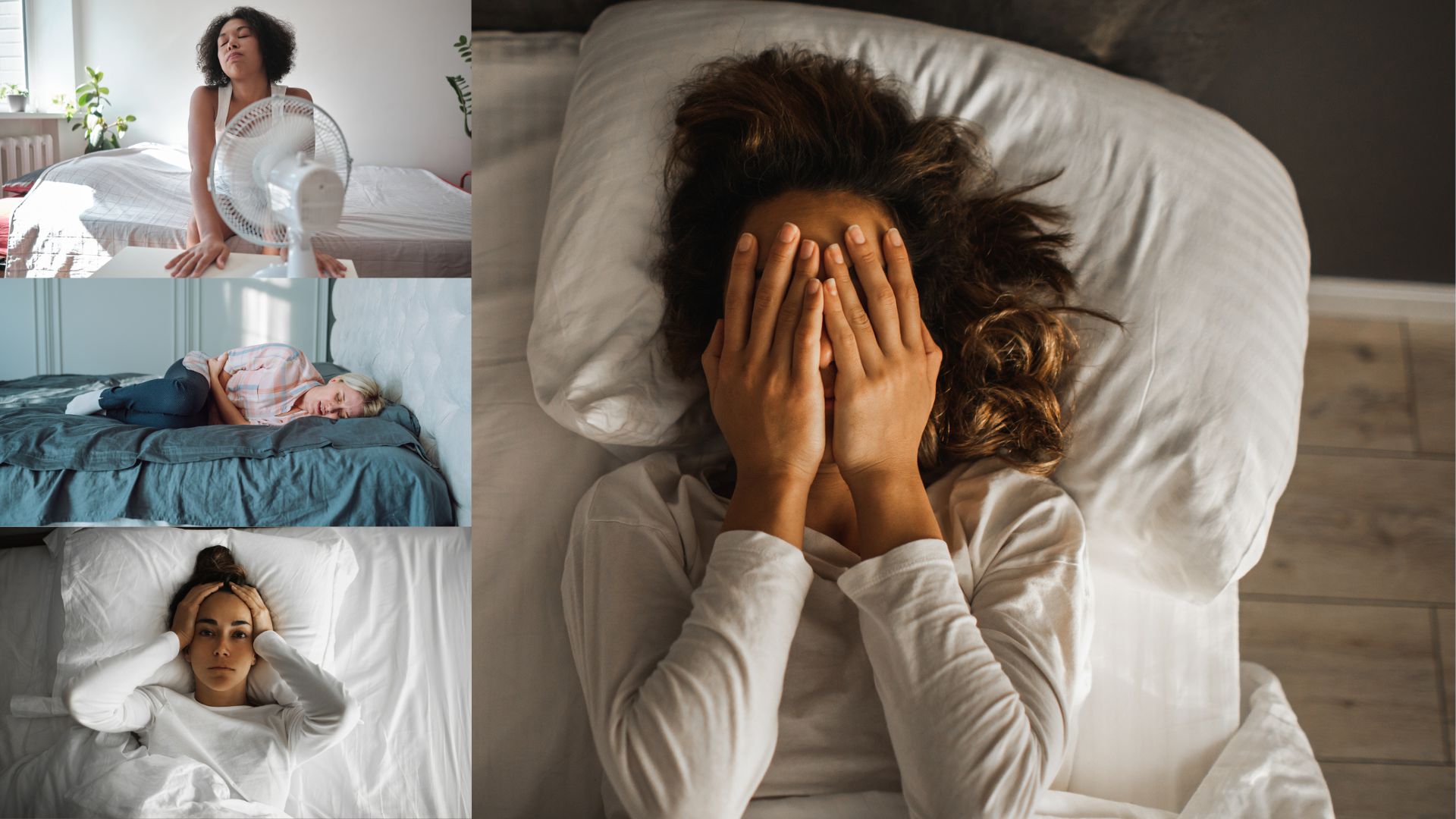
If you menstruate, there’s a good chance you’re among the estimated 90 percent of women who experience one or a few PMS symptoms like bloating, cramps and mood swings. One thing you may not realize is that the other phases of the menstrual cycle, as well as your period, can influence how well you sleep.
While hormonal changes can throw some women through a loop (in terms of their sleep quality and overall sense of well-being), symptoms like period insomnia and low energy aren’t inevitable.
In fact, during certain stages throughout the menstrual cycle, some women may even feel greater bursts of energy and better rest.
Keep reading to get a greater understanding of how the menstrual cycle and accompanying hormonal shifts impact sleep. And later: tips to overcome period insomnia, straight from a sleep doctor specializing in women’s health.
Does the menstrual cycle impact sleep?
According to Andrea Matsumura, MD, MS, FACP, FAASM, board-certified sleep medicine physician at Sleep Goddess MD, the menstrual cycle can impact sleep—and is quite common—primarily due to fluctuations in estrogen and progesterone (key female sex hormones).
Existing medical and lifestyle factors can amplify these changes, as well.
“For example, this can include heavy periods or premenstrual dysphoric disorder (PMDD), polycystic ovary syndrome (PCOS), hormonal imbalances, and existing sleep disorders such as insomnia, restless leg syndrome, and sleep apnea,” Dr. Matsumura shares.
Get instant access to breaking news, the hottest reviews, great deals and helpful tips.
Simply put, hormonal shifts during the menstrual cycle can worsen symptoms, especially in those who are sensitive or prone to sleep disturbances. However, these shifts won’t necessarily affect all menstruating women across the board.
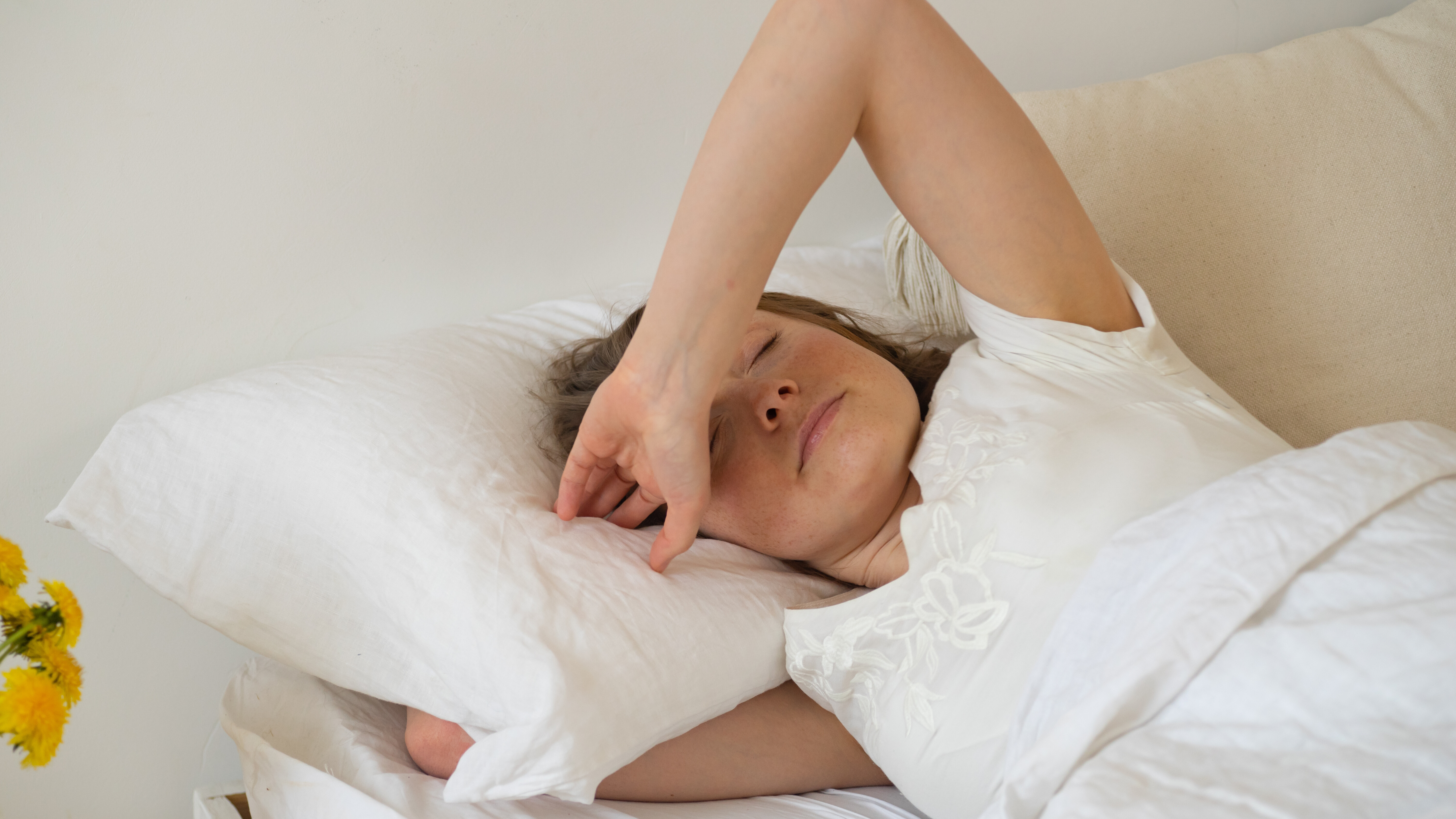
How the menstrual cycle impacts our sleep
The menstrual cycle has four phases, each of which trigger hormonal shifts and potential symptoms, including sleep difficulties and benefits.
1. Menstrual phase
“During this phase, estrogen and progesterone are at their lowest, removing their natural sleep-promoting effects,” says Dr. Matsumura.
Due to these dips, some women may experience lighter or more disrupted sleep, such as frequent awakenings throughout the night.
There are also other symptoms to contend with that can interfere with R&R.
“Along with mood changes from the hormone drop, physical symptoms like cramps, bloating, and headaches further interfere with rest and a lot of women find it hard to relax,” Dr. Matsumura explains.
In one study of menstruating females ages 12 to 25, those with existing insomnia had significant associations with dysmenorrhea (i.e., painful periods or menstrual cramps), though no substantial relationship between these symptoms and amount of sleep was found.
Nonetheless, sleep quality is unlikely to be at its peak during menstruation. “Essentially, the low-hormone state in addition to the menstrual discomfort often makes sleep during this phase less restorative,” says Dr. Matsumura.
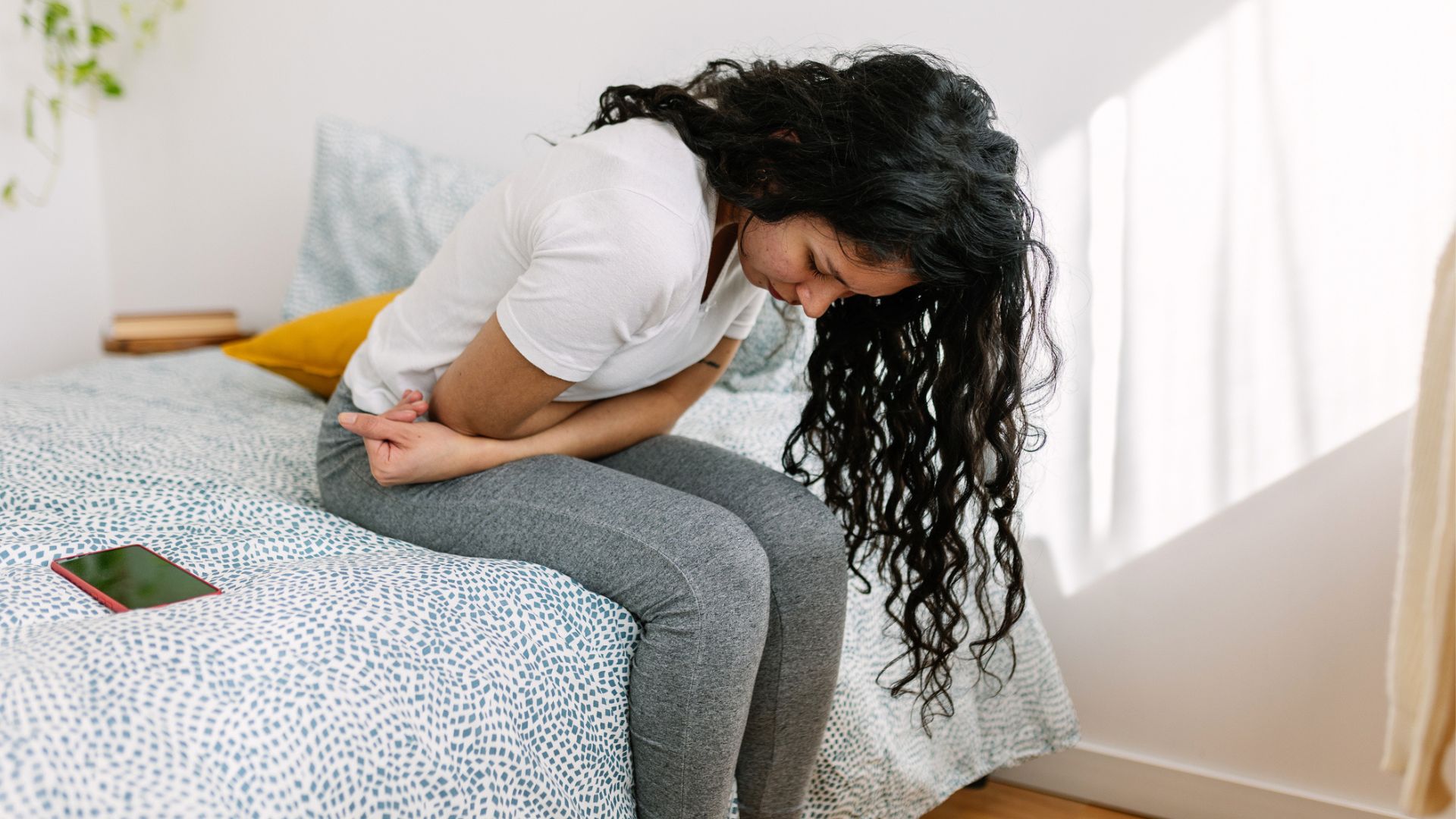
2. Follicular phase
Menstruation is technically in the earlier part of the follicular phase. Yet during the latter part (which ends as ovulation begins), you’ll be in a better position to experience several benefits, including better sleep.
During the late part of the follicular phrase, estrogen rises steadily. “This increases serotonin and melatonin production, which can improve sleep quality,” Dr. Matsumura shares.
Melatonin is a key sleep hormone that helps keep the circadian rhythm regulated, making it easier to fall asleep and stay asleep.
But that’s not all. Research shows that this stage is also associated with more focus, happiness, and less fatigue as well as increased muscle strength.

3. Ovulation
In the days leading up to ovulation, estrogen is at its highest. “Peak estrogen can enhance mood and energy,” says Dr. Matsumura.
Many women find it harder to fall asleep during this phase
While this can give you a boost as you carry on with your, she says that these highs won’t always taper off at night.
By the time bedtime rolls around, you might feel more alert than usual, rather than ready to rest and recover.
“Many women find it harder to fall asleep during this phase,” she shares.
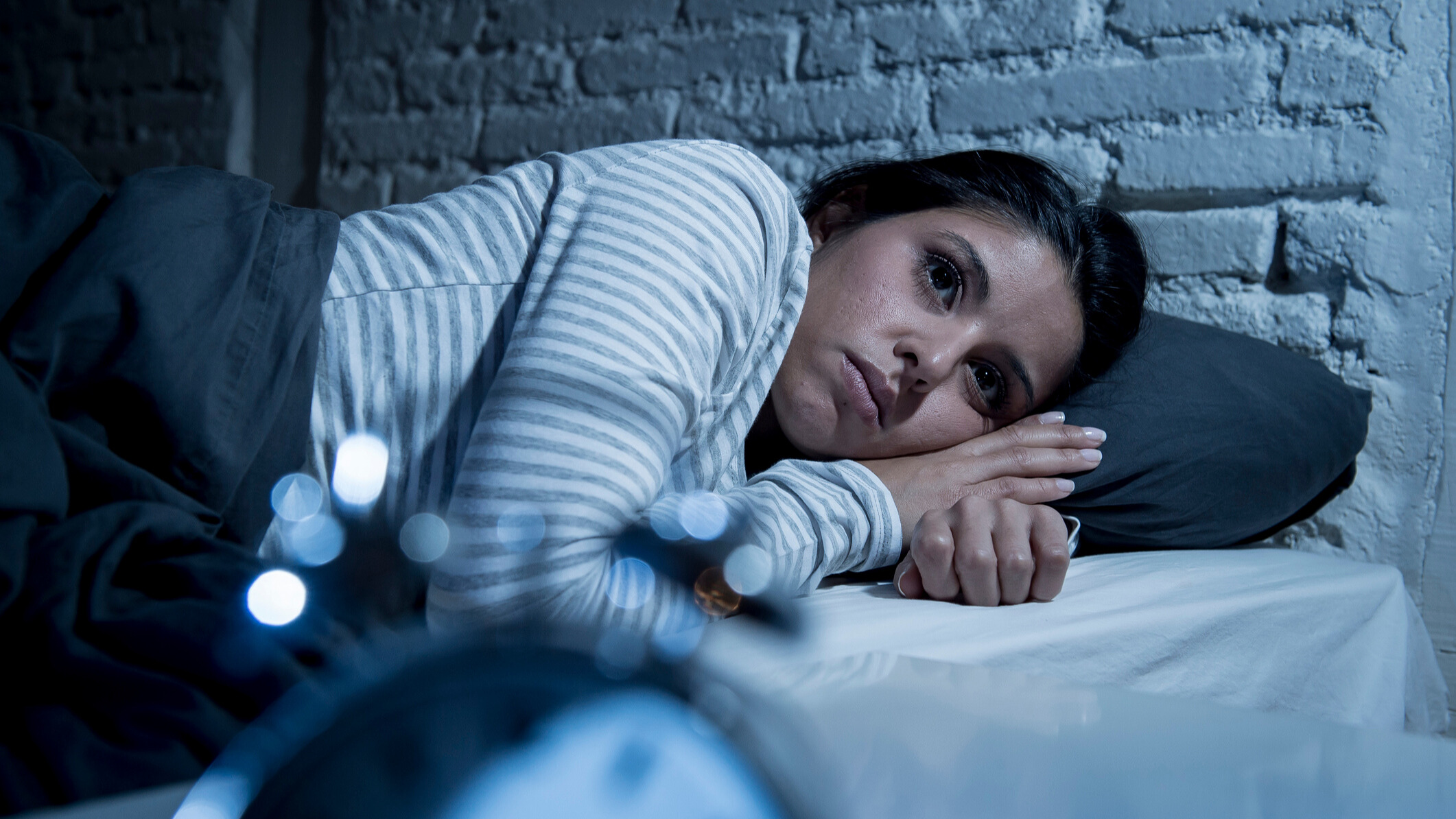
4. Luteal
After ovulation and once the luteal phase begins, progesterone rises. “It’s mildly sedating, which can initially help with sleep,” Dr. Matsumura explains.
However, during the latter part of the luteal phase (i.e., the week leading up to your period, or the PMS stage), progesterone begins its descent.
If you find yourself tossing and turning during this premenstrual period, know that you’re not alone
“As progesterone drops right before menstruation, body temperature begins to rise and this shift can make it harder to sleep,” says Dr. Matsumura.
(Remember: A decrease in core body temperature is crucial to facilitate a good night’s rest—hence why a cool bedroom environment is encouraged to help you fall asleep.)
If you find yourself tossing and turning during this premenstrual period, know that you’re not alone. Per Dr. Matsumura, many women will experience insomnia a few days leading up to their first day of menstruation.
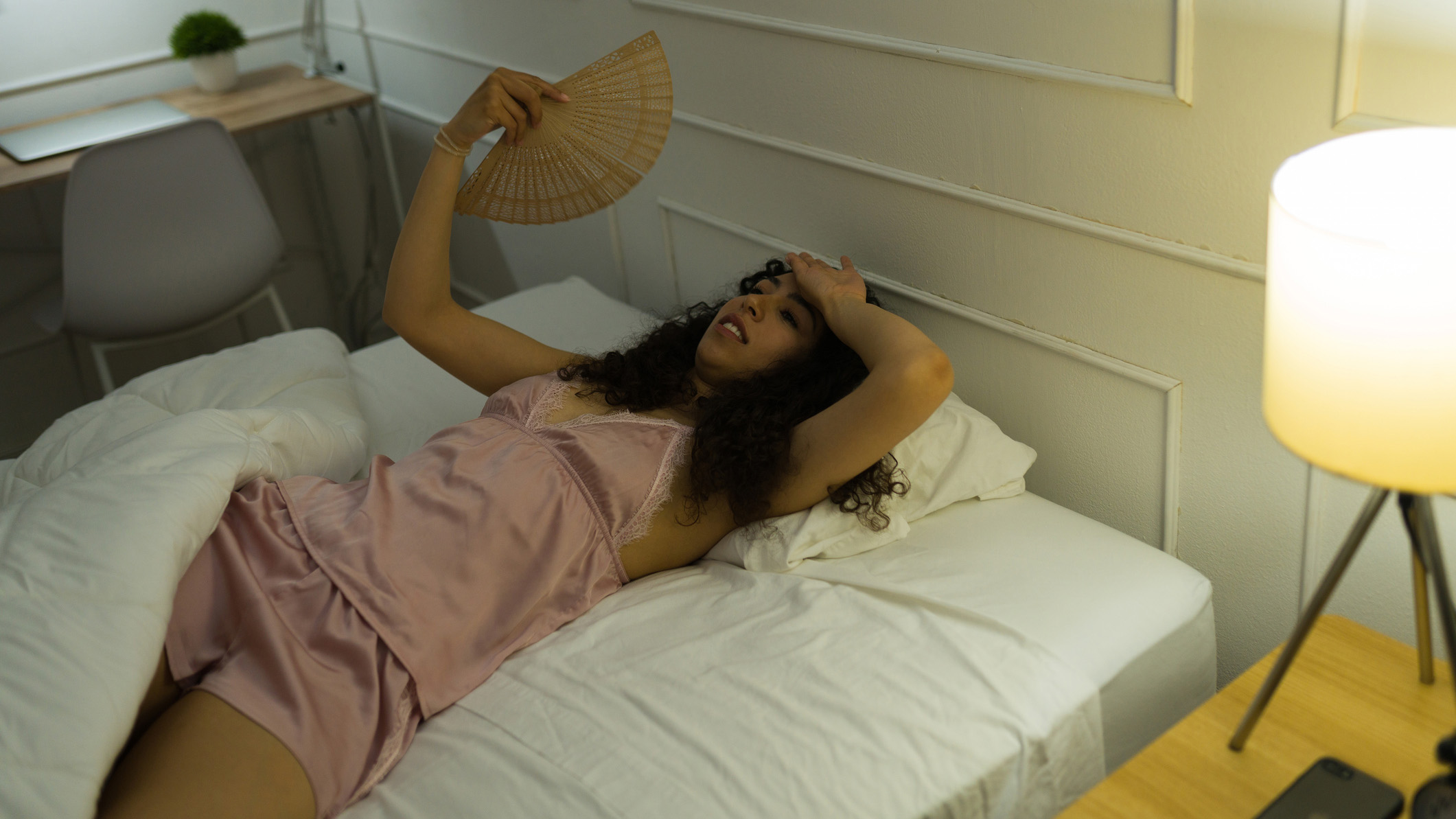
How to overcome period insomnia
Period insomnia—i.e., difficulty falling or staying asleep in the days leading up to your period or as it begins—is common “due to the sharp drop in estrogen and progesterone, combined with cramps, bloating, and mood changes,” says Dr. Matsumura.
If you experience period insomnia, be sure to heed the expert advice below.
1. Exercise early and/or outdoors
“To help ease period insomnia, try exercising earlier in the day,” Dr. Matsumura advises.
Exercising earlier in the morning—not to mention exercising outdoors for sunlight exposure, if and when possible—can get your circadian rhythm on track, thereby promoting daytime energy and calm by nightfall.
Morning movement can also help you avoid waking up throughout the night, not to mention prevent the pitfalls of a sedentary lifestyle for your sleep and overall health alike.

2. Create a calming bedtime routine
Building a calming bedtime routine that quiets your nervous system and lets your body know it’s time to relax is crucial—not only to combat period insomnia, but to promote good rest each and every night.
When body temperature is higher, create a cooler sleeping environment
Best of all, there’s no shortage of rituals worth including in your wind-down routine, so you can mix and match a few to see what works best for you.
Dr. Matsumura suggests stretching, reading, or meditation—but you can also choose from the likes of journaling, taking a bath, gentle yoga, deep breathing, or whatever else invites your mind and body to rest and reset.
If and when period insomnia hits, Dr. Matsumura suggests bringing in some extra support. “Use a heating pad for cramps before bed, practice gentle stretching, or try magnesium to relax muscles and nerves,” she shares.
In addition, turning down the thermostat can work wonders. “A week before your period, when body temperature is higher, create a cooler sleeping environment to help counteract heat-related awakenings,” Dr. Matsumura advises.
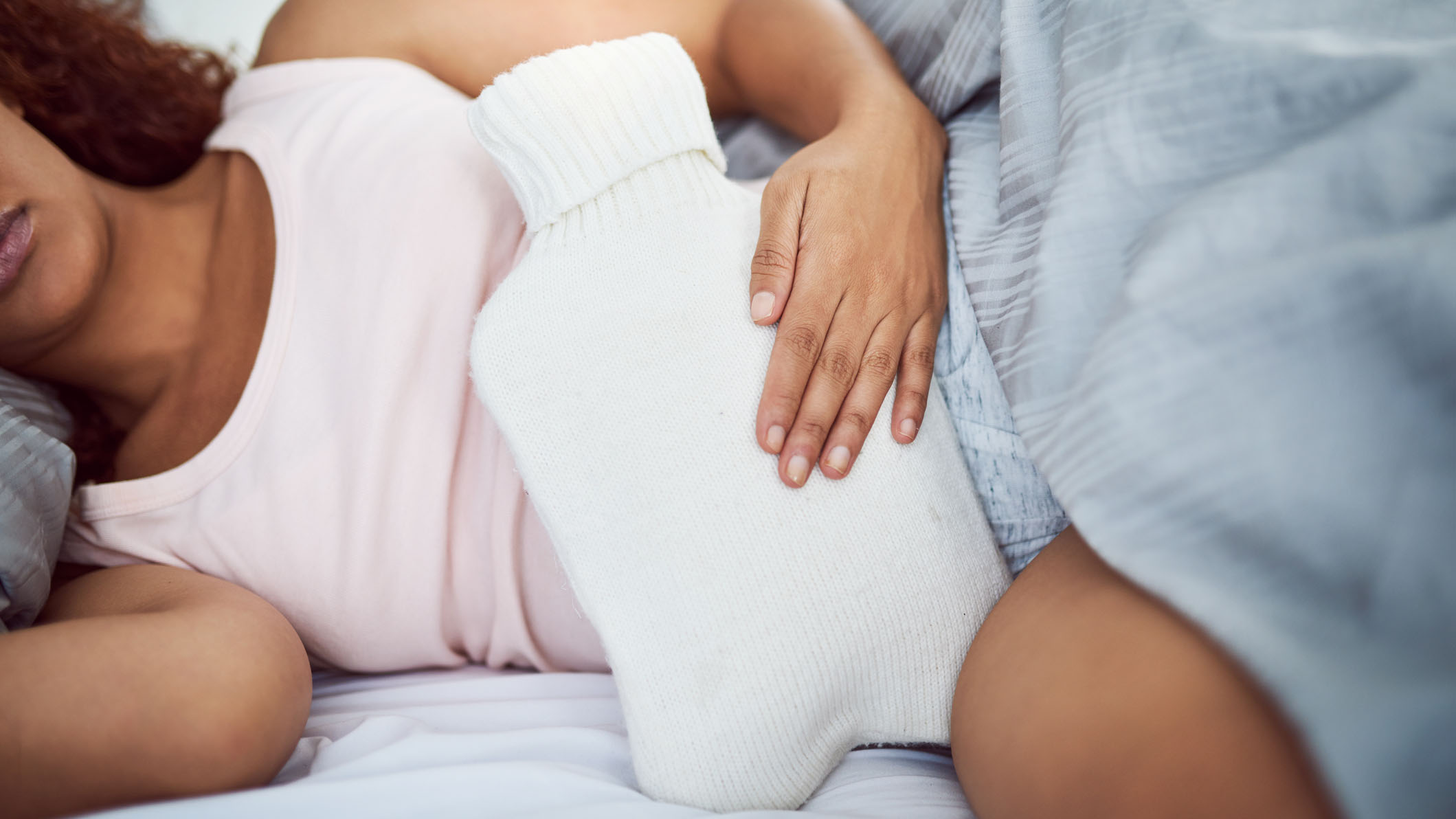
3. Practice good sleep hygiene
Practicing good sleep hygiene begins well ahead of bedtime. For instance, you’ll want to cut off your caffeine intake in the early afternoon (or by morning if you’re more sensitive to it), as well as curb your alcohol intake at nighttime.
Insomnia in women is often overlooked
In addition, Dr. Matsumura champions one of the golden rules of sleep: keeping a consistent sleep schedule.
“Go to bed and wake up at the same time every day to help regulate your circadian rhythm, even when hormones are pulling you off track,” she advises.
Last but not least, if your sleep disruptions (menstrual-related or otherwise) are severe or persistent, consult a trusted health professional.
“Insomnia in women is often overlooked but can signal underlying hormonal or sleep disorders that deserve treatment,” Dr. Matsumura shares.
Michele Ross is a freelance writer based in Los Angeles. For Tom's Guide and TechRadar, she interviews medical experts for sleep tips and tricks, as well as reviews mattresses and toppers to see which ones are truly worth buying for different types of sleepers and budgets. She has also covered a range of sleep topics for publications and brands including Well+Good, HUM Nutrition, and Mini Bloom, among others.
You must confirm your public display name before commenting
Please logout and then login again, you will then be prompted to enter your display name.
 Club Benefits
Club Benefits






